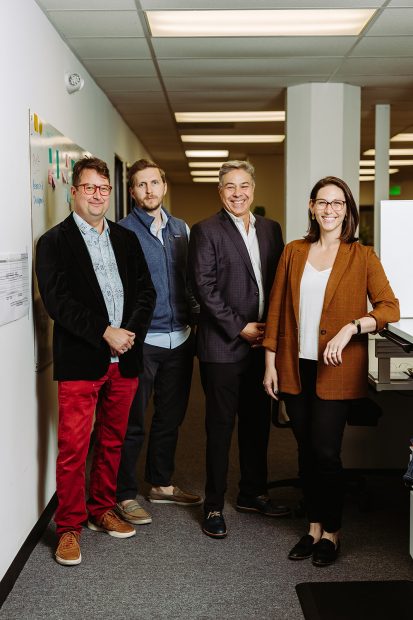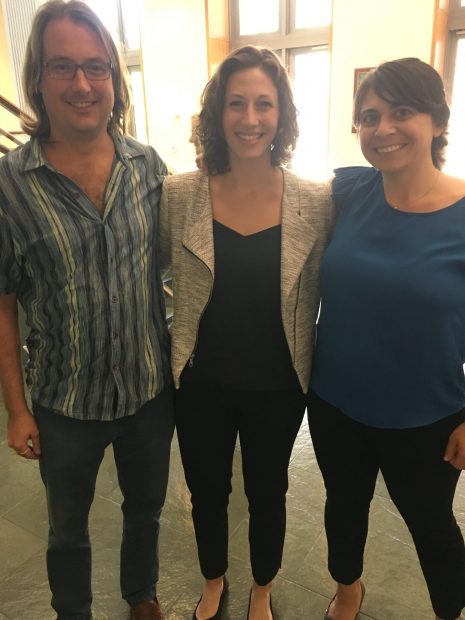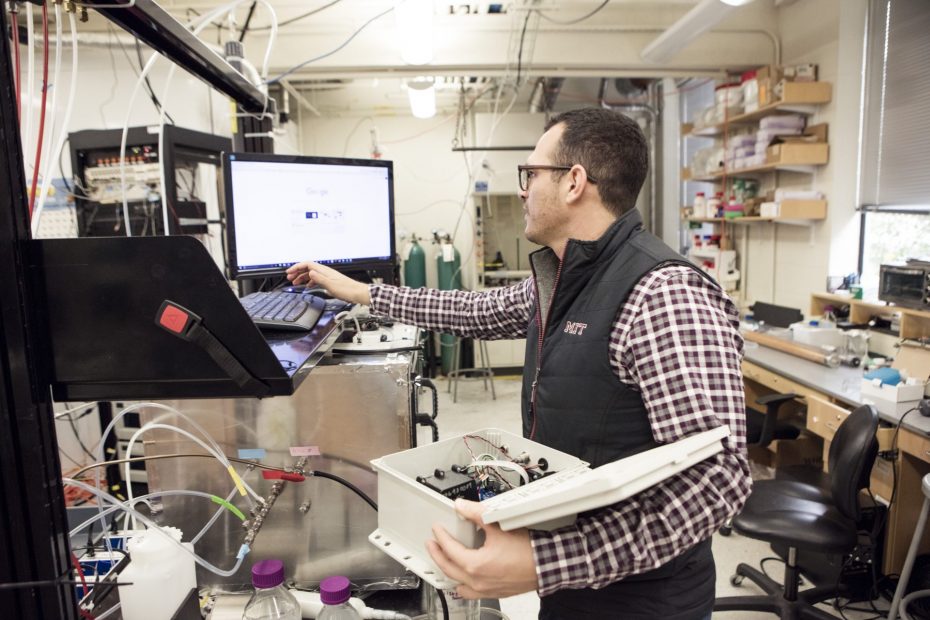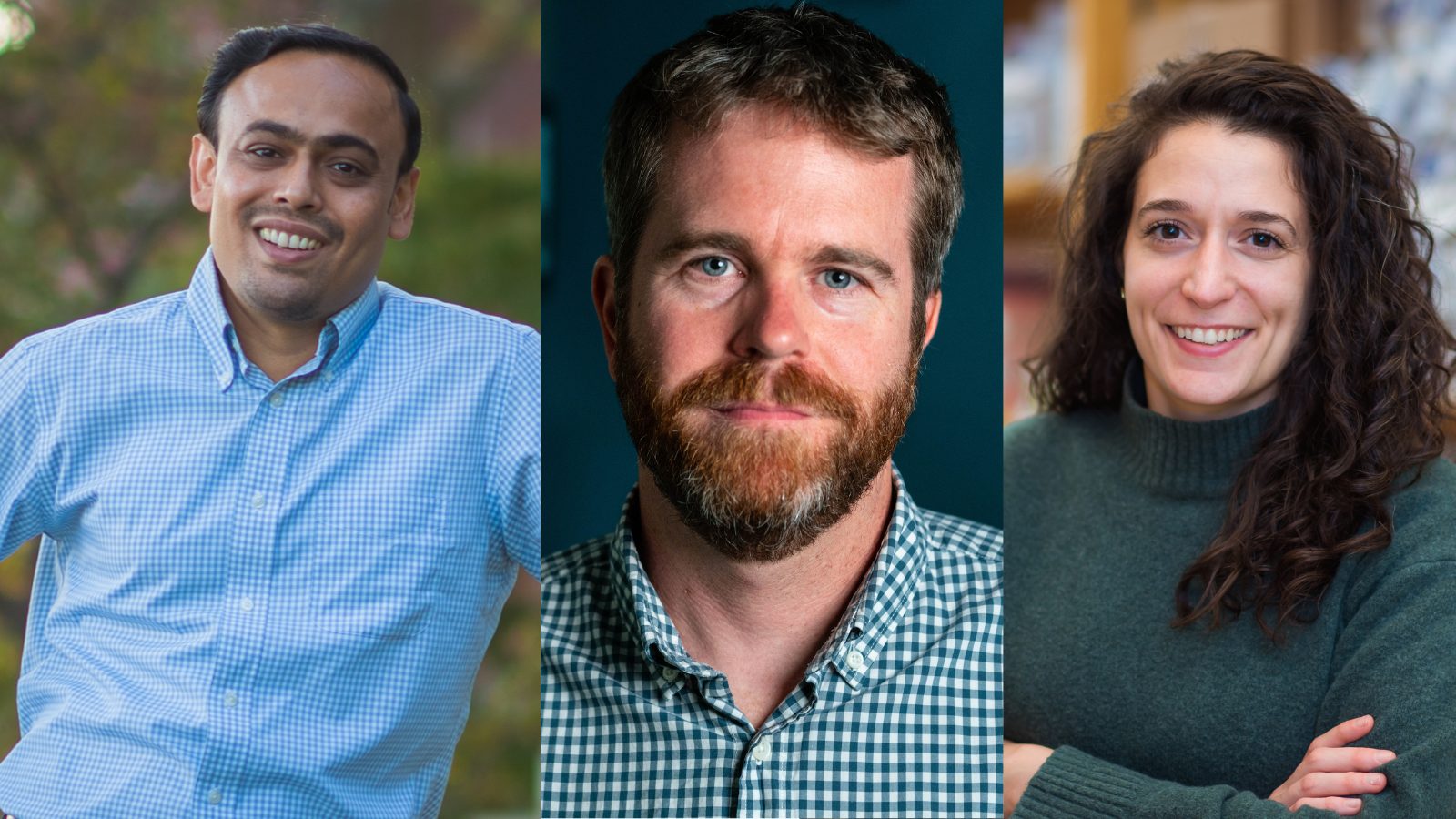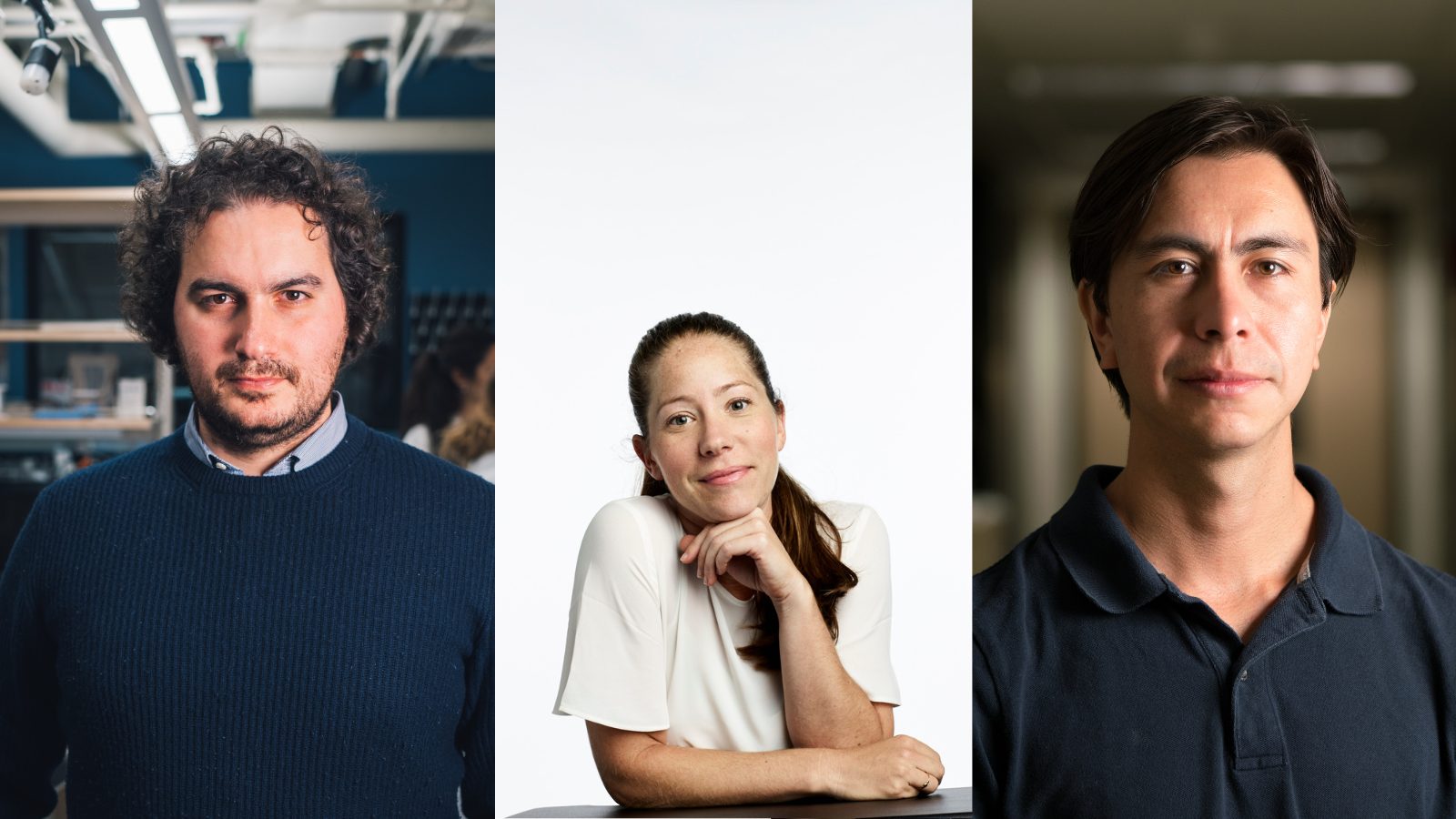From PhD dissertations to startups, CEOs with connections to CEE spun their research into practice

Member companies of startup incubator Greentown Labs, Nth Cycle and QuantAQ are forging a path in the climatetech space based on research their CEO’s completed in graduate school.
Nth Cycle is a metals refining company co-founded in 2017 by Megan O’Connor, Desirée Plata, Associate Professor of MIT Civil and Environmental Engineering, and Chad Vecitis. Both Plata and O’Connor received their undergraduate degrees at Union College but first met when Plata recruited chemistry students from Union College to apply to the environmental engineering graduate program at Duke University. O’Connor applied and Plata became her advisor. It wasn’t until an encounter with Vecitis at an American Chemical Society meeting, when Plata began to see all the pieces come together for an idea, she had in her college years. This idea would become the basis of O’Connor’s PhD research.
Vecitis was faculty at Harvard when he gave a talk at the American Chemical Society session that Plata was organizing about an electroactive filter used for an organic chemical treatment. At the time, Plata was making nanotube arrays to treat metals in her hydraulic fracturing work. When asked if he ever tried using the device to separate metals, Vecitis said no but had always been interested to see if that application could work. Around the same time, O’Connor attended a Green Electronics Summit and heard directly from industry leaders the issues they were expecting over the next 10 years in both recycling of these electronic devices, as well the anticipated supply and demand issues for these critical metals. That’s when the idea solidified.
O’Connor had been working with Plata on hydraulic fracturing waste processing for a few years, but they decided to pivot the research to metal recovery from electronics.
When Plata moved her career to Yale University in 2014, she continued to advise O’Connor on metal recovery until she graduated in 2017. Vecitis served on O’Connor’s thesis committee and played an integral role.
O’Connor’s research proved they had a technology of value to recover the critical minerals from e-waste and mine tailings needed for the green energy economy. They co-founded Nth Cycle a day after O’Connor defended her dissertation and today O’Connor serves as Chief Executive Officer and Vecitis as Chief Scientist.
Critical minerals such as copper, lithium, nickel, cobalt,manganese, and other rare earth elements are components of today’s clean energy technologies – from wind turbines to electric vehicles. Demand for these minerals is growing at a rapid pace as the world transitions to greener technologies. The impact of the Inflation Reduction Act now requires electronic vehicle manufacturers to source at least 50 percent of their EV batteries domestically by 2024. Currently, a vast majority of minerals are sourced from China. Nth Cycle hopes to change that.
Nth Cycle’s solution uses electro-extraction to cut through industrial waste, low-grade ore, and waste from mine sites, and pulls out the critical minerals that are ready for use in clean energy technologies, paving the way forward for manufacturers, mining waste management and industrial scrap recycling companies.
Climatetech startup, QuantAQ builds professional-grade air quality sensors and was co-founded by former CEE graduate student, David Hagan PhD ’19 and postdoc and research scientist, Eben Cross in 2019. Hagan, who serves as CEO and Cross as Chief Science Officer, began their research in 2014 while studying atmospheric chemistry in the lab of Jesse Kroll, professor of civil and environmental engineering and chemical engineering.
Hagan’s doctoral work and fellowship through MIT’s Tata Center for Technology and Design was centered around applying research into the real-world application of starting a company.
“One of the things that drove me to start a company as opposed to staying in academia is the ability to support a scalable product to impact more people than otherwise would have been possible,” says Hagan.
As part of his research, Hagan helped build and design the air quality sensors that students use in the MIT Traveling Research Environmental Experiences (TREX) course 1.091 in Hawaii during IAP (Independent Activities Period).
Now at QuantAQ, Hagan has a team of people that builds, assembles, calibrates, and tests commercialized sensors that are shipped around the world from their Greentown Lab office space.
QuantAQ sensors are used by government agencies monitoring for ambient air pollution or environmental justice, in addition to industry and community organizations and even the space station.
Hagan says a large part of his client application is monitoring dust particles due to certain industries, and state regulations. “Industries like construction, mining, and railyards that generate a lot of dust particles in the atmosphere are often required to monitor the air. And certain states that have projects over a certain size are legally required to monitor dust and mitigate any issues.”
Another part of their business is monitoring gases and particulate matter in ambient environments to supplement the exisiting regulatory stations and in countries where there are little to no air quality measurements.
QuantAQ sensors measure most EPA criteria pollutants and more, including exposure to the most harmful particulate matter particles (PM1), (PM2.5), (PM10). The sensors are easy for clients to install. The IoT device are internet connected via a cell network and continuously stream data to the cloud. The cloud platform allows management and operation of a network of sensors in addition to tools that allow clients to build applications or incorporate the QuantAQ data into their own internal dashboards.
Hagan says the market for air quality sensors is growing quickly due to climate change and the world becoming a more arid place, making dust more of a pollution problem.
Royal Visit
When the Prince and Princess of Wales came to Boston in December 2022 for the Earthshot Prize Awards ceremony, one of their visits included a stop at Greentown Labs to see the work happening locally with the climate crisis. Among the five startups at Greentown Labs that were invited to showcase their solutions was Nth Cycle and QuantAQ. They were chosen to represent two of the five award categories of the Earthshot prize, “Build a Waste-Free World and “Clean our Air.”
When asked how what it meant to meet the Royals, Nth Cycle and QuantAQ both liked how it shined a spotlight to the public on the different global challenges facing climate change and put Boston on the map as the incubator for cleantech.
“Hopefully, the public begins to understand how inherently connected climate change and air pollution really are,” says Hagan.
